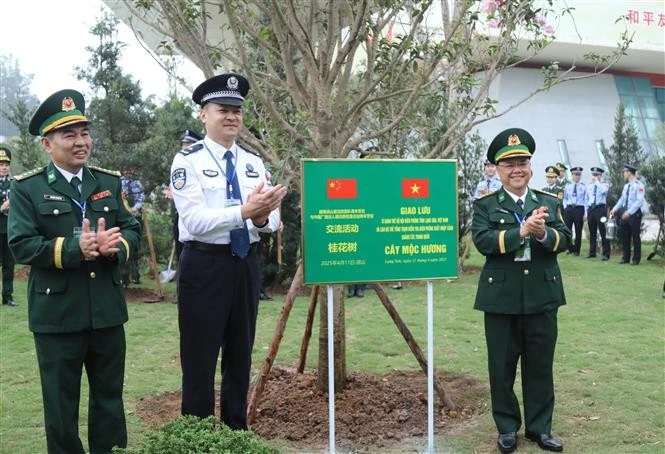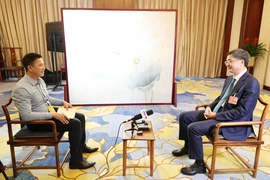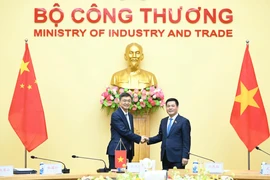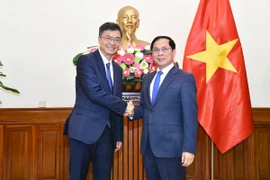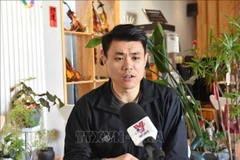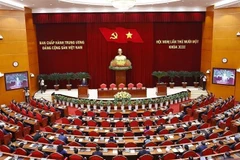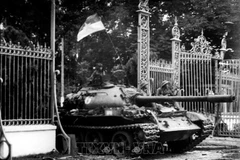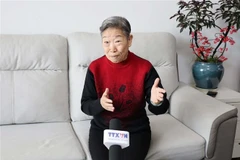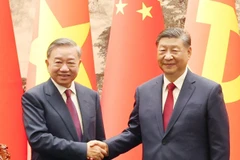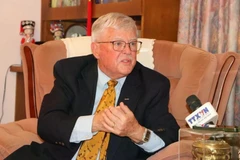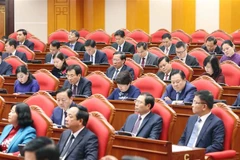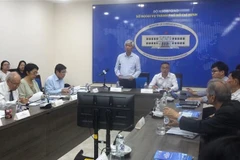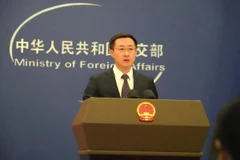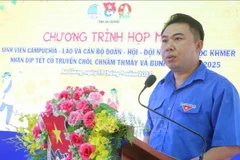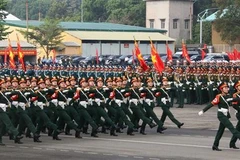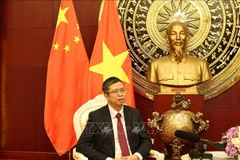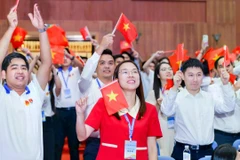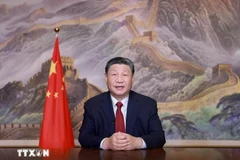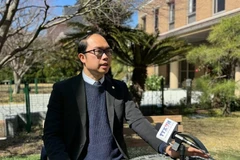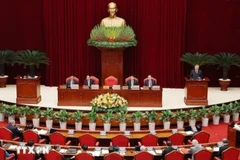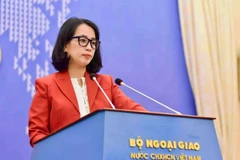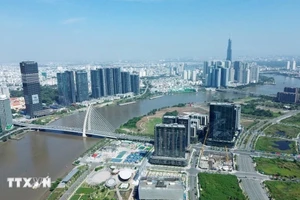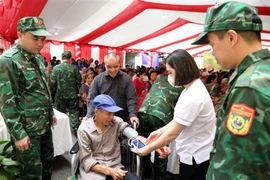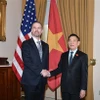Lang Son (VNA) - Young officers from the Border Guard of the northern province of Lang Son and their peers from the Exit-Entry Frontier Inspection General Station of China's Guangxi province had a seminar and exchange programme in Lang Son city on April 11.
The event served as a platform for young personnel from both sides to exchange experience and reflect on the proud, deep-rooted traditions of friendship and cooperation between Vietnam and China.
The exchange aimed to further cultivate solidarity and strengthen the comprehensive cooperation between the two Parties, States, and border forces.
During their discussion, the participants exchanged views on joint border management, legal education, and coordination in natural disaster and epidemic prevention and control.
Captain Pham Quang Hieu from the Border Guard Station of the Huu Nghi International Border Gate emphasised the importance of smart border gate management and proposed stronger cooperation in immigration control and customs clearance. He also urged young officers to take initiative in learning, particularly in applying information technology to enhance professional capacity.
Major Phung Ly Huynh of Bac Xa Border Guard Post suggested the two sides organise training programmes and exchanges to support each other in professional tasks.
Wang Xianfeng from the Political Department of Guangxi Exit-Entry Frontier Inspection General Station highlighted the need for youth officers to understand the historical significance of bilateral relations and actively preserve and promote them to build a peaceful, cooperative and stable border.
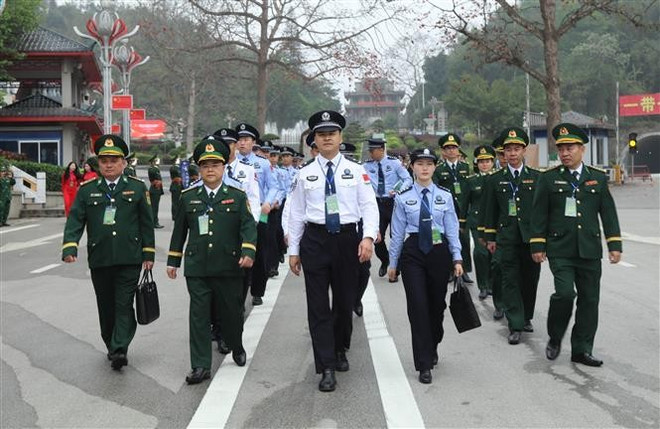
Colonel Luong Manh Vong, Deputy Political Commissar of Lang Son Border Guard, affirmed that recent cooperation between the young officers of the two units has achieved encouraging results.
He called on the youth to continue fostering coordination in border management and crime prevention, while also raising awareness about the special Vietnam–China bond - “comrades and brothers” - and the guiding principle of friendly neighbourliness, comprehensive cooperation, long-term stability, and looking toward the future.
Both sides committed to enhancing communication with border communities, ensuring compliance with the three Vietnam–China legal documents on land border management, and encouraging public participation in crime reporting and protection of border markers and infrastructure. They also proposed expanding successful models such as “friendship envoys” and “twinned border posts and communities.”
Over the years, young officers from both sides have remained at the forefront of implementing tasks, strengthening border management coordination and people-to-people exchanges. They regularly participate in joint foreign affairs activities, combat illegal border crossings and smuggling, and exchange greetings during holidays and major political events.
Young officers have also actively advised their leadership on pending border issues and violations of bilateral agreements, while maintaining hotline coordination and participating in the handover of Vietnamese and Chinese citizens involved in border-related cases.
Since 2013, the two forces have expanded the twinning models, currently maintaining nine pairs of border villages and two pairs of communes/towns./.
